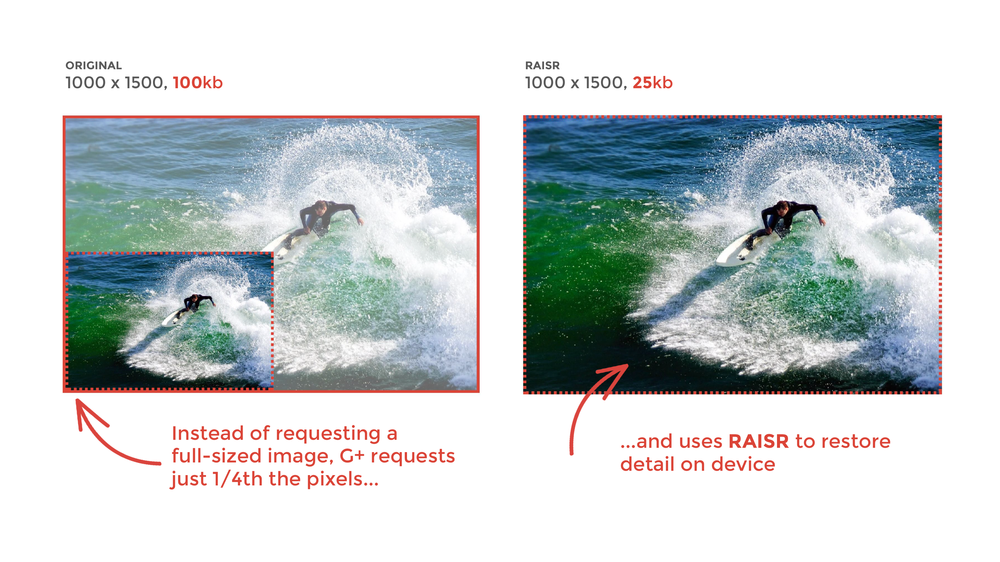In a bid to save you precious mobile data, Google has developed a technique that improves image quality without taking up more bandwidth. Entitled RASIR (Rapid and Accurate Super Image Resolution) this impressive software quickly reads large photos and manages to replicate them using a quarter of the pixels.
RASIR achieves this by analyzing both low and high-quality versions of the same image. As it reads the image, it learns from the superior version and applies filters to its low-res counterpart that simulate extra detail, creating a convincing data-friendly replica of the original high-res photo.
 Unfortunately for the majority of smartphone users, the machine learning-powered tech is currently only available on Google+. The company has rolled out the tech to a subset of Android devices, and claims to be upscaling over a billion images per week. Impressively, Google states that thanks to RASIR, it has used 75% less bandwidth per image it’s upscaled.
Unfortunately for the majority of smartphone users, the machine learning-powered tech is currently only available on Google+. The company has rolled out the tech to a subset of Android devices, and claims to be upscaling over a billion images per week. Impressively, Google states that thanks to RASIR, it has used 75% less bandwidth per image it’s upscaled.
For those not interested in Google+, Google aims to expand its use of the tech more broadly across its many apps and services over the coming weeks and months.
(35)

